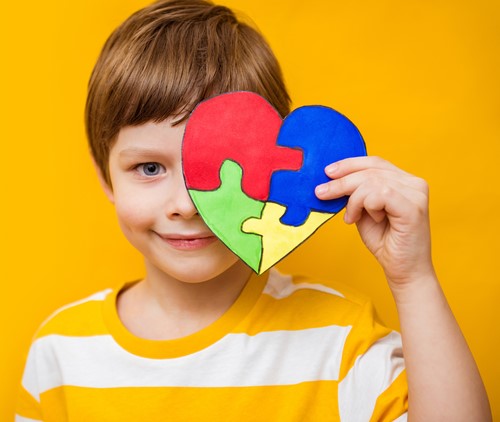Signs of Autism in Children
As parents, we're always on the lookout for our children's developmental milestones. From their first smile to their first steps, these moments not only bring joy but also offer reassurance that things are progressing as they should. But what if you notice behaviours that seem a bit different from the norm? Could these be signs of autism?

What is Autism?
Autism is a developmental condition that can affect social interaction, communication, and behaviour. The characteristics can vary from one child to another, but generally, children with autism may have difficulties with social communication and exhibit restricted and repetitive patterns of behaviours or interests. These signs can be present from as early as two years old.
Signs to Look Out For
According to the NHS and autism.org.uk, some common signs of autism in young children include:
* Not Responding to Their Name: If you've noticed that your little one doesn't turn their head when you call them, it might be worth paying attention to.
* Avoiding Eye Contact: Babies usually love to gaze into your eyes. A lack of eye contact could be a sign.
* Limited Social Interaction: If your toddler doesn't point at objects or events to share their interest, it could be an indicator of autism.
* Repetitive Behaviours: Ever noticed your child lining up their toys in a very specific order, over and over again? This could be another sign.
* Resistance to Change: Children with autism often like routines and may get very upset if there's a change, especially if it is unexpected.
* Sensory Sensitivities: Extreme reactions to certain tastes, smells, or sounds can also be indicative.
The Importance of Diagnosis
Getting a diagnosis can be a relief for many parents as it helps in understanding the child's needs better and it can also pave the way for specialised support at nursery, school and at home.
It can be a hugely positive thing for the child too – if they are autistic, it is likely they will start to wonder why they feel ‘different’ from the other children around them, especially as they get older. Receiving a diagnosis gives them some understanding and context for these feelings, and the chance to realise that they are far from alone, as they meet other children on the autistic spectrum.
But try not to be concerned – even if your child does have autism, it is a condition that often has as many positives as it has challenges. After all, many of the most successful people in the world are on the autistic spectrum: Elon Musk, Anthony Hopkins, Dan Akroyd and Susan Boyle to name just a few.
Getting a Diagnosis
If you suspect your child might be autistic, you should consult your GP or a health visitor for an assessment.
You can also use tools like the M-CHAT (Modified Checklist for Autism in Toddlers) for preliminary screening at home – you can access one of these tools at www.autismspeaks.org/screen-your-child.
So, keep an eye out, but also keep in mind that every child is unique. What might be a sign in one child may just be a quirk in another. Trust your instincts, you know your child best.